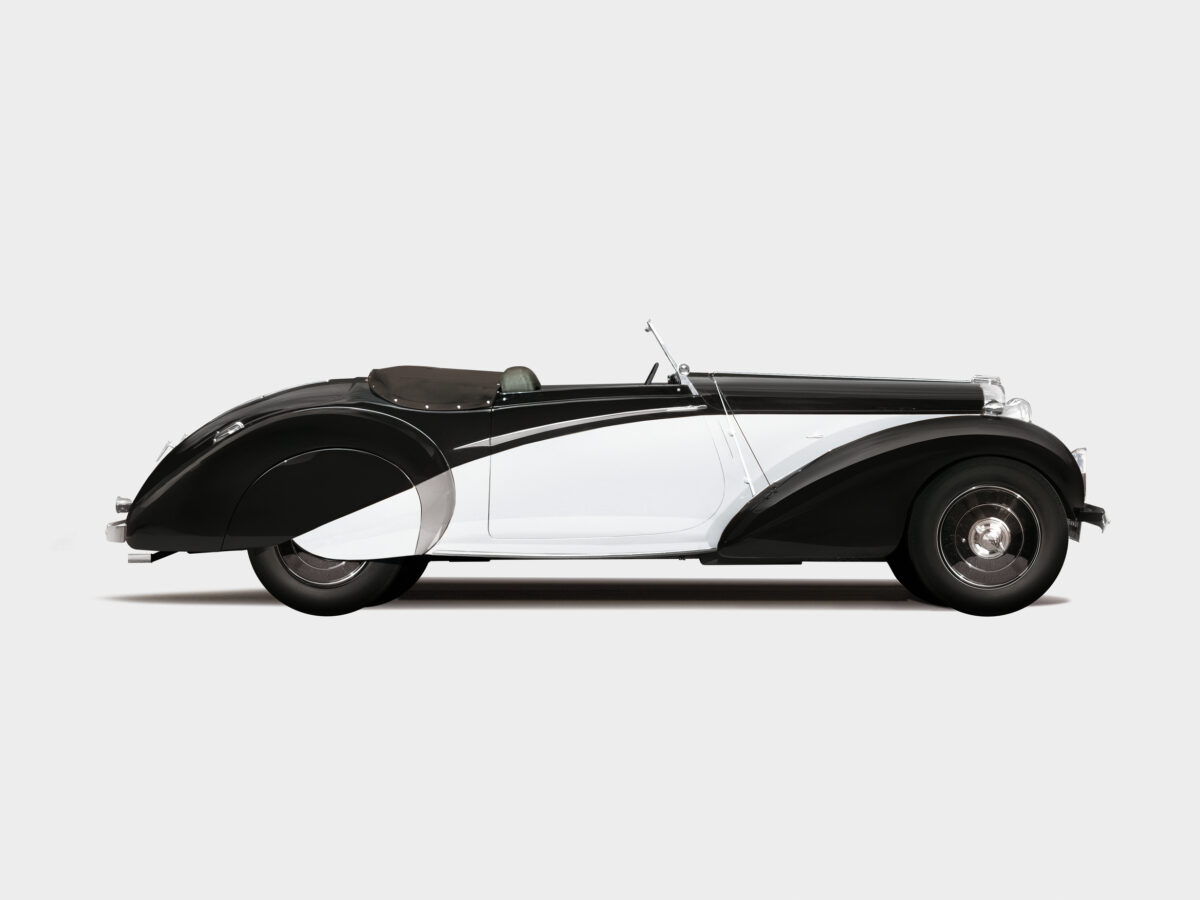Lagonda – V12 Rapide (1938)
Details
- Vehicle Type:
- Drophead Coupé
- Coach Builder:
- Lagonda
- Cylinders:
- V12
- Engine CC:
- 4480
- Entrant
- Christoph Zeiss (CH)
Class B
SHAPED BY THE WIND: THE EVOLUTION OF AERODYNAMICS
In 1935, W. O. Bentley was recruited by Lagonda as chief engineer, following the sale of his own Bentley company to Rolls-Royce in 1931. His mission was to work on a range of new engines and chassis. In 1937, the Lagonda V12 was introduced as a completely new model and production continued until 1940. This powerful coupé is regarded as one of the finest V12-engined cars to emerge from the era before the Second World War. While W.O. Bentley had a design for a V12 engine at the ready, he had been unable to bring it to fruition at his own company. The Lagonda V12 chassis wore independent torsion-bar front suspension and was fitted with modern hydraulic drum brakes. Out of 187 V12 Lagondas built for the European and North American markets, only 17 were sold in the more powerful and sportier Rapide version. Constructed on a shorter 260 cm wheelbase it was bodied in the very elegant drophead coupé coachwork penned by Frank Feeley. All but two cars carried this body built in-house. Bentley’s highly sophisticated V12 engine packing 180 hp also powered the 1939 team cars finishing in third and fourth place at Le Mans that year. The Le Mans specification engine was mounted in eight cars, fitted with an array of four rather than two carburettors. The Lagonda V12 Rapide shown here at the Concorso d’Eleganza Villa d’Este is believed to be the first example. It was sold new in October 1938 to Alfred ‘Jimmie’ McAlpine, grandson of British engineering giant Sir Robert McAlpine and son of construction magnate Sir Alfred McAlpine. When on a visit to the works for repairs following an accident in 1941, the Rapide was fitted with the four-carburettor setup as run at Le Mans in 1939. McAlpine kept the car well into the post-war period and sold it to a new caretaker in 1955.
